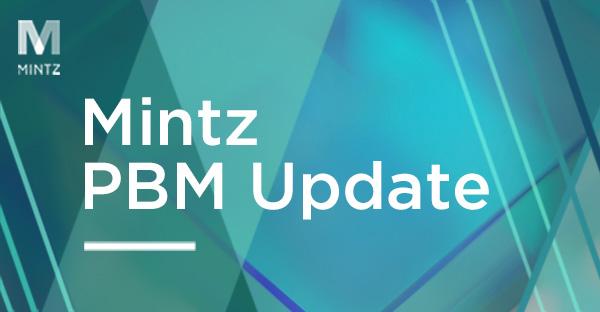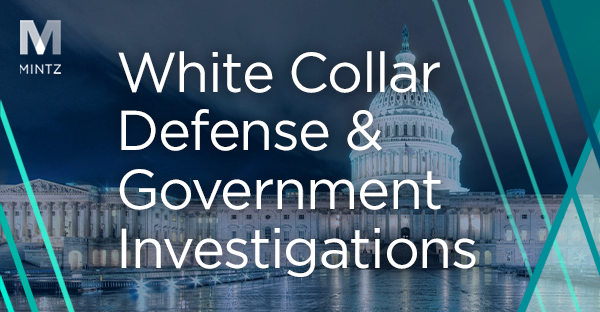
Health Care
Viewpoints
Filter by:
California’s Office of Health Care Affordability – First Ever Cost and Market Impact Review and Potential Expansion of Office’s Authority
July 16, 2025 | Blog | By Daniel Cody, Karen Lovitch, Deborah Daccord
Since April 2024, the California Department of Health Care Access and Information (HCAI), Office of Health Care Affordability (OHCA) has received twenty-six Material Change Transaction Notices (Notices) as part of its authority to review certain proposed California health care transactions. (See our prior posts here and here.) In twenty-three of the proposed transactions, OHCA has reviewed the Notices and waived a full Cost and Market Impact Review (CMIR), with two transactions still under review.
DOJ Issues Subpoenas Targeting Transgender Care to Minors: What Health Care Providers Need to Know
July 11, 2025 | Blog | By Erek Barron, Karen Lovitch
In a brief press release published on July 9, 2025, the Department of Justice (DOJ) announced the issuance of more than 20 subpoenas to doctors and clinics as part of investigations into health care fraud, false statements, and related federal violations. The actions specifically target health care providers involved in transgender medical procedures for minors, representing a significant enforcement response that warrants careful analysis.
FDA in Flux — July 2025 Newsletter
July 9, 2025 | Article | By Joanne Hawana, Benjamin Zegarelli
The July 2025 edition of FDA in Flux highlights five significant developments shaping the regulatory landscape for medical, life sciences, and consumer product sectors.
Health Law Diagnosed – Best Practices for Communicating with the FDA
July 9, 2025 | Podcast | By Bridgette Keller, Joanne Hawana, Benjamin Zegarelli
Of Counsel Bridgette Keller is joined by Joanne Hawana, Ben Zegarelli, and John Daley, as they offer advice for navigating communications with the FDA.
Federal Court Temporarily Halts Iowa’s PBM Reform Law Amid Legal Challenges
July 8, 2025 | Blog | By Rachel A. Alexander, Theresa Carnegie, David Gilboa, Abdie Santiago
On June 11, 2025, Iowa enacted Senate File 383 (the “Act”), a comprehensive bill aimed at regulating pharmacy benefit managers (PBMs) with the stated goals of increasing transparency, supporting independent pharmacies, and reducing prescription drug costs. However, on June 30, 2025, just one day before the Act’s effective date, the U.S. District Court for the Southern District of Iowa issued a temporary restraining order (TRO), enjoining enforcement of the Act against the lawsuit’s named plaintiffs. The court found that the plaintiffs, a coalition of Iowa employers and ERISA-governed health plans, demonstrated a likelihood of success on the merits of their claims that the Act is preempted by the Employee Retirement Income Security Act of 1974 (ERISA) and violates the First Amendment. The lawsuit aligns with other recent challenges against similar comprehensive legislation and further demonstrates the long-lasting conflict between PBM reform legislation and preemption by federal law.
Health Care Fraud Enforcement Developments: the 2025 Takedown and a “New” False Claims Act Working Group
July 7, 2025 | Blog | By Jane Haviland, Karen Lovitch, Laura E. Martin
This year’s National Health Care Fraud Takedown (Takedown) announced recently by the Department of Justice (DOJ) was touted by the Department of Justice as the largest to date, involving over $14.6 billion in “intended loss” and 324 defendants charged. The Takedown reinforces the Trump administration’s commitment to prioritizing health care fraud enforcement, highlights the “significant return on investment” these efforts yield, and repeatedly emphasizes the imperative to prevent fraud before it starts.
Oregon Law Restricts Common Management Service Organization – Professional Entity Structure
June 20, 2025 | Blog | By Cody Keetch, Kate Stewart
On June 9, 2025, Oregon Governor Tina Kotek signed into law Oregon Senate Bill 951 (Oregon CPOM Law), further expanding Oregon’s prohibition on the corporate practice of medicine (CPOM) doctrine. The stated purpose of the Oregon CPOM Law is to build upon Oregon’s established corporate practice of medicine prohibition, originally established by the Oregon Supreme Court in the 1947 decision in State ex rel. Sisemore v. Standard Optical Co, which banned corporations from holding a majority ownership in medical practices, practicing medicine, or employing physicians.
OIG Favorable Advisory Opinion on Physician Practice’s Arrangement with Telehealth Platform and Recent Corporate Practice of Medicine Developments
June 18, 2025 | Blog | By Daniel Cody, Cassandra Paolillo, Rachel Yount
On June 11, 2025, the Department of Health and Human Services Office of Inspector General (OIG) issued a favorable advisory opinion on a proposed arrangement where a physician practice managed by a management services organization (MSO) would engage telehealth-based practices and platforms (collectively, Telehealth Companies) to provide telehealth services, including leasing health care professionals and maintaining the telehealth platform. The physician practice would submit claims for the telehealth services under its own private and government payor contracts. This advisory opinion addresses an increasingly common telehealth delivery model aimed at increasing the availability of health plan coverage for telehealth services, particularly in recent years with the rise in popularity of GLP-1 drugs for managing obesity.
DOJ Civil Division Publishes Memo Outlining Trump Administration Civil Enforcement Priority Related to Health Care
June 18, 2025 | Blog | By Joanne Hawana, Samantha Kingsbury, Karen Lovitch, Benjamin Zegarelli
In May 2025 the Department of Justice (DOJ) Criminal Division published its enforcement priorities, and the Civil Division has now followed suit with a memorandum of its own (the “Civil Division Memo”). It outlines five policy objectives that President Trump and Attorney General Bondi have directed the Civil Division to prioritize in their investigative and enforcement work:
(1) combatting discriminatory practices and policies;
(2) ending antisemitism;
(3) protecting women and children;
(4) ending sanctuary jurisdictions; and
(5) prioritizing denaturalization.
Each section identifies the Executive Order(s) and DOJ Memoranda that set forth the Trump Administration’s policy objective(s) in each priority area and describes the types of conduct that will be subject to enforcement, as well as some of the tools that DOJ might use in those efforts. This article focuses on the Administration’s stated objective of “protecting women and children,” which relates to several Executive Orders regarding gender identity and gender-affirming care and a related directive from Attorney General Bondi that the Civil Division describing DOJ’s intent to investigate certain manufacturers and distributors of puberty blockers, sex hormones, and other drugs.
FDA in Flux — June 2025 Newsletter
June 12, 2025 | Article | By Joanne Hawana, Benjamin Zegarelli
Welcome to FDA in Flux – A Mintz newsletter tracking rapid changes in policy and agency actions that impact medical, life sciences, and consumer product investment decisions and development strategies.
Health Law Diagnosed: PBM Update Spring 2025
June 10, 2025 | Podcast | By Bridgette Keller, David Gilboa
Host, Bridgette Keller is joined by Associate, David Gilboa to break down the highlights from our Spring 2025 PBM Policy and Legislative Update. In just five minutes, we cover the most impactful federal and state developments shaping the PBM landscape this season.
PBM Policy and Legislative Update — Spring 2025
June 10, 2025 | Blog | By Rachel A. Alexander, Theresa Carnegie, Tara E. Dwyer, Lauren Moldawer, Bridgette Keller, Pamela Polevoy, Madison Castle, David Gilboa, Xavier Hardy, Samantha Hawkins, Stephnie John, Alison H. Peters, Abdie Santiago, Hassan Shaikh, Sophia Temis, Payton Thornton
The PBM Policy and Legislative Update — Spring 2025 edition builds upon prior issues and summarizes activity from January through March (2025) that affects the PBM industry. It highlights federal activities, state activities, and other noteworthy events and trends affecting the PBM industry.
PBMs Sue Arkansas over Restrictive PBM Ownership Law
June 9, 2025 | Blog | By Theresa Carnegie, Hassan Shaikh, Samantha Hawkins, Mitchell Clough
On April 16, 2025, Arkansas enacted Act 624 (the Act), an unprecedented law prohibiting pharmacy benefit managers (PBMs) from owning or operating pharmacies in the state. As we discussed in our May 2025 blog post, the law’s passage has already resulted in market disruptions, and PBMs with vertically integrated business models have cautioned that the law will limit patients’ access to drugs and cost many local jobs.
Now, two of the nation’s largest PBMs, CVS Health and Cigna’s Express Scripts (ESI), have filed federal lawsuits seeking to block implementation of the Act on the grounds that the Act is unconstitutional, preempted by federal law, and harmful to Arkansans.
CMS Sheds Light on its Timeline for Expedited RADV Audits
June 5, 2025 | Blog | By Tara E. Dwyer, Bridgette Keller
Shortly following its announcement of sweeping changes to RADV audits, CMS shared industry guidance last week regarding upcoming deadlines for the submission of risk adjustment data corrections in advance of RADV sampling. While this type of notice is routine in advance of RADV audit sampling, it is unique as it covers five plan years (2020 through 2024). CMS instructs Medicare Advantage organizations (MAOs) to submit data corrections for PY 2020 through PY 2024 with deadlines ranging from June 16, 2025, through July 15, 2025. Based on these dates and CMS’s target of completing these audits by early 2026, we believe that MAOs can expect to receive audit notices on a rolling basis beginning in the mid to late summer.
PBM Legislation in the Reconciliation Bill is Far From Sweeping PBM Reform
May 28, 2025 | Blog | By Bridgette Keller, Lauren Moldawer, Abdie Santiago, Madison Castle
Over the past few years, Congress has attempted to pass “federal PBM reform.” Members of Congress have held numerous hearings related to PBMs and introduced numerous bills seeking to regulate PBMs (we regularly track these federal actions through our quarterly PBM Policy and Legislative Updates). Despite the rhetoric in Washington about bipartisan support to regulate PBMs, Congress has not been able to pass meaningful PBM reform. This brings us to the One Big Beautiful Bill (Reconciliation Bill), which includes some PBM measures but remains far from the sweeping reform Congress previously introduced and from what we are seeing at the state level. The House passed the Reconciliation Bill on May 22, 2025, with a slim margin of 215 to 214. The Reconciliation Bill will now move to the Senate, where the Senate will need to approve it with a simple majority for it to become law.
New York Department of Health Publishes Material Transactions Reporting Form
May 28, 2025 | Blog | By Jean D. Mancheno, Cody Keetch
In our February 14, 2025 blog post, we detailed a proposed expansion of Article 45-A of New York’s Public Health Law (hereinafter, the Disclosure of Material Transactions Law) included in the proposed Fiscal Year 2026 New York State Executive Budget (FY 26 Executive Budget). The amendment was dropped from the final FY 26 Executive Budget’s Health and Mental Hygiene Article VII Legislation, which was signed into law by Governor Hochul on May 9, 2025. The Memorandum of Support accompanying the proposed legislation touted the amendment as a way to strengthen New York State Department of Health’s (DOH) oversight of material health care transactions, contending that it would allow DOH to gather more quantitative information to assess the transaction’s potential and actual post-closure impact. The legislation would have increased oversight by altering notice and disclosure requirements, permitting DOH to require a full cost and market impact review, and empowering DOH to delay the transaction’s closing to allow for a fulsome cost and market impact review. However, with the rejection of the amendment from the final FY 26 Executive Budget, the Disclosure of Material Transactions Law will remain in effect as it has been since August 1, 2023.
CMMI Unveils New Strategic Direction: Preventive Care, Patient Empowerment, and Competition
May 27, 2025 | Blog | By Rachel Yount
The Center for Medicare and Medicaid Innovation (CMMI) recently announced a new strategic direction during a public webinar and accompanying white paper, outlining its evolving priorities under the current administration. During the May 13, 2025 webinar, Abe Sutton, Director of CMMI and Deputy Administrator for the Centers for Medicare & Medicaid Services (CMS), emphasized CMMI’s continued mission to improve the U.S. health care system and to build on its 15 years of testing alternative payment models. As described in more detail below, however, CMMI’s new strategic direction reflects a shift in focus from CMMI’s approach under the Biden administration even while certain longstanding goals remain the same.
CMS Announces Sweeping Changes to RADV Audits
May 22, 2025 | Blog | By Tara E. Dwyer, Bridgette Keller
On May 21, 2025, the Centers for Medicare & Medicaid Services (CMS) announced significant changes in its risk adjustment data validation (RADV) audits. The changes focus on speed, the volume of targeted contracts, and process. CMS accurately labeled its strategy as aggressive.
Private Equity Group and Hedge Fund Bills Continue Through the California Legislature
May 22, 2025 | Blog | By Daniel Cody, Karen Lovitch
California legislative activity focused upon private equity group and hedge fund health care transactions continues notwithstanding California Governor Gavin Newsom’s veto last fall of California Assembly Bill 3129 (AB-3129).
Voluntary Self-Disclosure and Whistleblower Awards Initiatives Are Alive and Well in 2025: DOJ Issues White-Collar Enforcement Priorities for the New Administration
May 22, 2025 | Advisory | By Eoin Beirne, Nick A. LaPalme, Andrew Tucker Bobbitt
The first 120 days of the Trump administration have been characterized by dramatic changes in the realm of white-collar enforcement. Recently issued memoranda and policy guidance from DOJ contains critical details regarding the new administration’s enforcement priorities.
Explore Other Viewpoints:
- Data Centers & Digital Infrastructure
- AI: The Washington Report
- Antitrust
- Appellate
- Arbitration, Mediation & Alternate Dispute Resolution
- Artificial Intelligence
- Awards
- Bankruptcy & Restructuring
- California Land Use
- Cannabis
- Class Action
- Complex Commercial Litigation
- Construction
- Consumer Product Safety
- Corporate Governance (ESG)
- Cross-Border Asset Recovery
- DEI Legal Developments
- Debt Financing
- Direct Investing (M&A)
- Diversity
- EB-5 Financing
- Education & Nonprofits
- Employment
- EnforceMintz
- Environmental (ESG)
- Environmental Enforcement Defense
- Environmental Law
- Environmental, Social, and Corporate Governance (ESG)
- FDA Regulatory
- False Claims Act
- Federal Circuit Appeals
- Financial Institution Litigation
- Government Law
- Growth Equity
- Health Care
- Health Care Compliance, Fraud and Abuse, & Regulatory Counseling
- Health Care Enforcement & Investigations
- Health Care Transactions
- Health Information Privacy & Security
- IP Due Diligence
- IPRs & Other Post Grant Proceedings
- Immigration
- Impacts of a New US Administration
- Insolvency & Creditor Rights Litigation
- Institutional Investor Class Action Recovery
- Insurance & Financial Services
- Insurance Consulting & Risk Management
- Insurance and Reinsurance Problem-Solving & Dispute Resolution
- Intellectual Property
- Investment Funds
- Israel
- Licensing & Technology Transactions
- Life Sciences
- Litigation & Investigations
- M&A Litigation
- ML Strategies
- Medicare, Medicaid and Commercial Coverage & Reimbursement
- Mergers & Acquisitions
- Patent Litigation
- Patent Prosecution & Strategic Counseling
- Pharmacy Benefits and PBM Contracting
- Portfolio Companies
- Privacy & Cybersecurity
- Private Client
- Private Equity
- Pro Bono
- Probate & Fiduciary Litigation
- Products Liability & Complex Tort
- Projects & Infrastructure
- Public Finance
- Real Estate Litigation
- Real Estate Transactions
- Real Estate, Construction & Infrastructure
- Retail & Consumer Products
- Securities & Capital Markets
- Securities Litigation
- Social (ESG)
- Special Purpose Acquisition Company (SPACs)
- Sports & Entertainment
- State Attorneys General
- Strategic IP Monetization & Licensing
- Sustainable Energy & Infrastructure
- Tax
- Technology
- Technology, Communications & Media
- Technology, Communications & Media Litigation
- Trade Secrets
- Trademark & Copyright
- Trademark Litigation
- Unified Patent Court (UPC)
- Value-Based Care
- Venture Capital & Emerging Companies
- White Collar Defense & Government Investigations
- Women's Health and Technology








